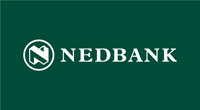Nedbank announced mid last week that its partnership with Wildlife Works, to make available to the international market African carbon credits, has proved successful. The demand for carbon credits from the international business community is said to be extremely strong.
In November 2009, Wildlife Works and Nedbank entered into a business arrangement whereby Nedbank acquired carbon credits from Wildlife Works for on-sale to the international and South African business community. More than 2,5 million tonnes of carbon was made available through the avoided deforestation of the Kasigau Corridor guaranteed until 2026.
Nedbank secures carbon neutrality
Nedbank retained a portion of the credits for its own carbon offset requirements which has seen the bank secure carbon neutrality. This makes Nedbank the first African bank to achieve this status and gives it the same status as global banks HSBC and Deutsche Bank. Nedbank has sold a portion of the remaining credits and is currently negotiating the sale of additional credits.
According to Kevin Whitfield, head of carbon at Nedbank Capital, the Wildlife Works' project, called the Rukinga and Kasigau Wildlife Corridor project, has proved to Africa that it is possible for the continent to become connected with the global green economy, and by so doing to drive revenues, to conserve its own rich natural heritage and to safeguard the livelihoods of its people. "This market has made it possible for the continent to effectively fight climate change, to uplift rural communities and to protect its wildlife through accessing carbon markets," he says. However he admits there has been a scarcity of projects of this type to date, and even fewer large scale carbon projects.
"Our experience is that there is extraordinary demand for good quality African offsets, and prices are good. Carbon credits represent a new asset class and I encourage Africa to leverage this opportunity," says Whitfield.
Monetising forest and biodiversity assets
Mike Korchinsky, founder and president of Wildlife Works, says its new venture, Wildlife Works Carbon, was established to help local landowners in the developing world to monetise their forest and biodiversity assets whether they are governments, communities, ownership groups or private individuals.
"The corridor project was designed to bring substantial benefits to local communities through education, job creation, environmental protection and direct financial rewards, while protecting precious biodiversity at the same time. It has met the most rigorous standard for ensuring communities and biodiversity benefit from climate change projects. To date it has delivered hundreds of jobs and four schools, setting a positive example for millions of Africans who have the potential to gain financial reward from REDD to boost the future of sustainable development in the face of climate change-related pressure to their livelihoods.
"We are excited that the global voluntary carbon marketplace has shown such keen interest in reducing its carbon footprint by investing in our carbon credits. The money that this project is yielding will help the Kenyan community to protect its natural forests, endangered species and the livelihoods of its people," says Korchinsky.
African forests constantly under threat
Saliem Fakir, head of the WWF in South Africa, says the indigenous forests of Africa are under constant threat as a result of human activities and climate change.
"Many of these types of forests cannot be found anywhere else in the world. Saving them should be an utmost priority. Rukinga and the associated Kasigau Wildlife Corridor project are world class examples of projects that are making a tangilble difference to both communities and the environment and it is innovative finance solutions, like carbon financing, that makes them possible. Both Nedbank and Wildlife Works are to be commended for their role in bringing this deal to fruition," he says.
The deal between Nedbank and Wildlife Works was Africa's first reduced emissions from deforestation and degradation (REDD) project developed at scale. Registration from the benchmark voluntary carbon market registry, the VCS (Voluntary Carbon Standard) was achieved. The project has also been awarded gold level approval under the Climate Community and Biodiversity Alliance's (CCBA) forestry protection standard - a milestone in establishing REDD in the global carbon marketplace.
For more information on Wild Works, go to www.wildlifeworks.com.
























